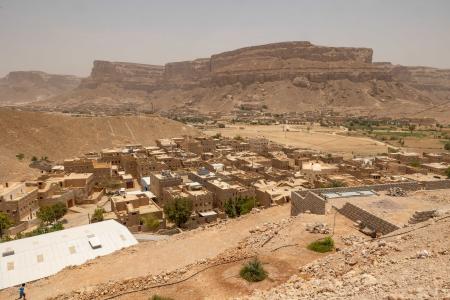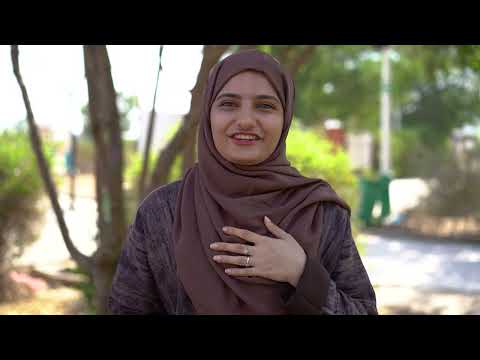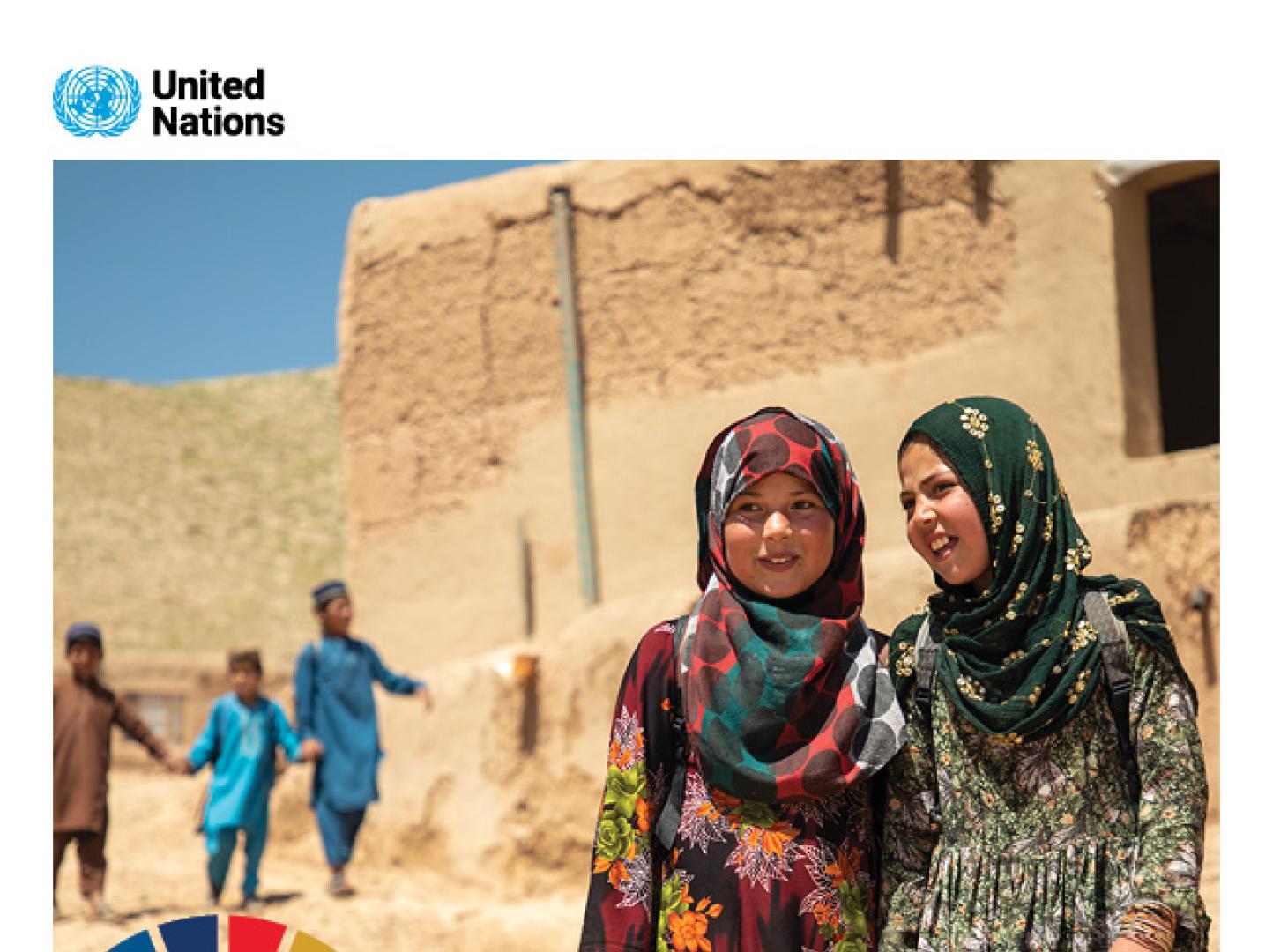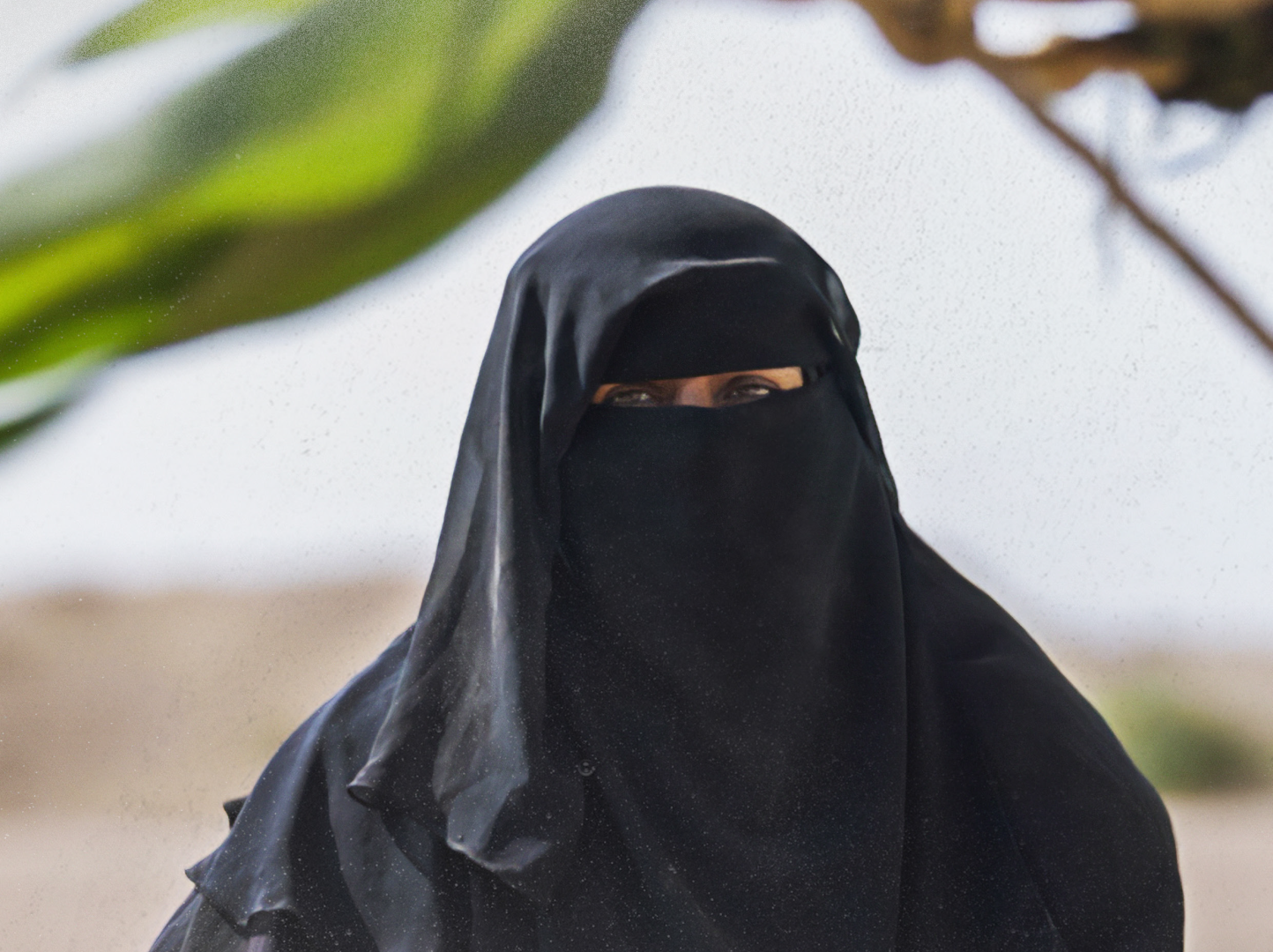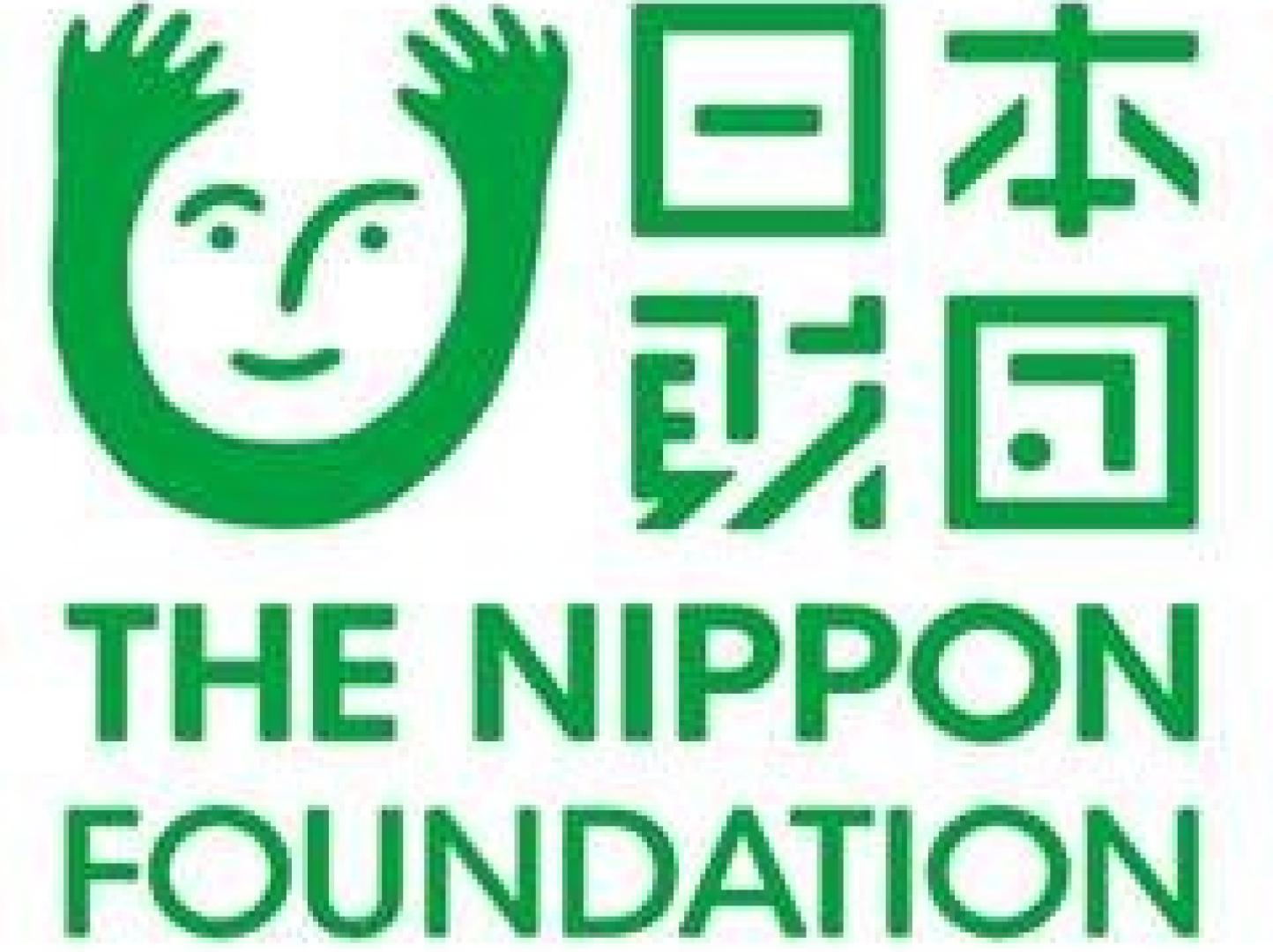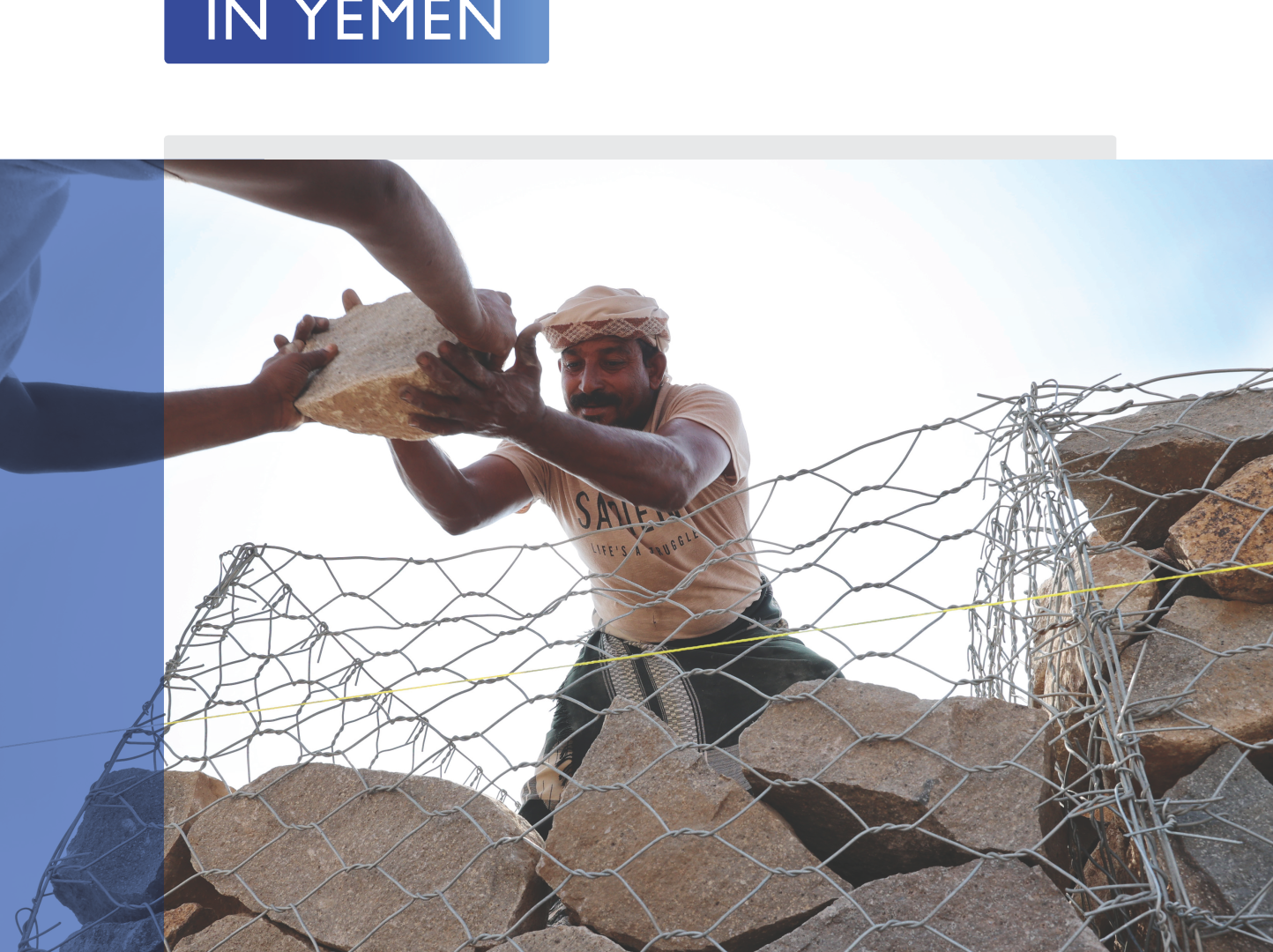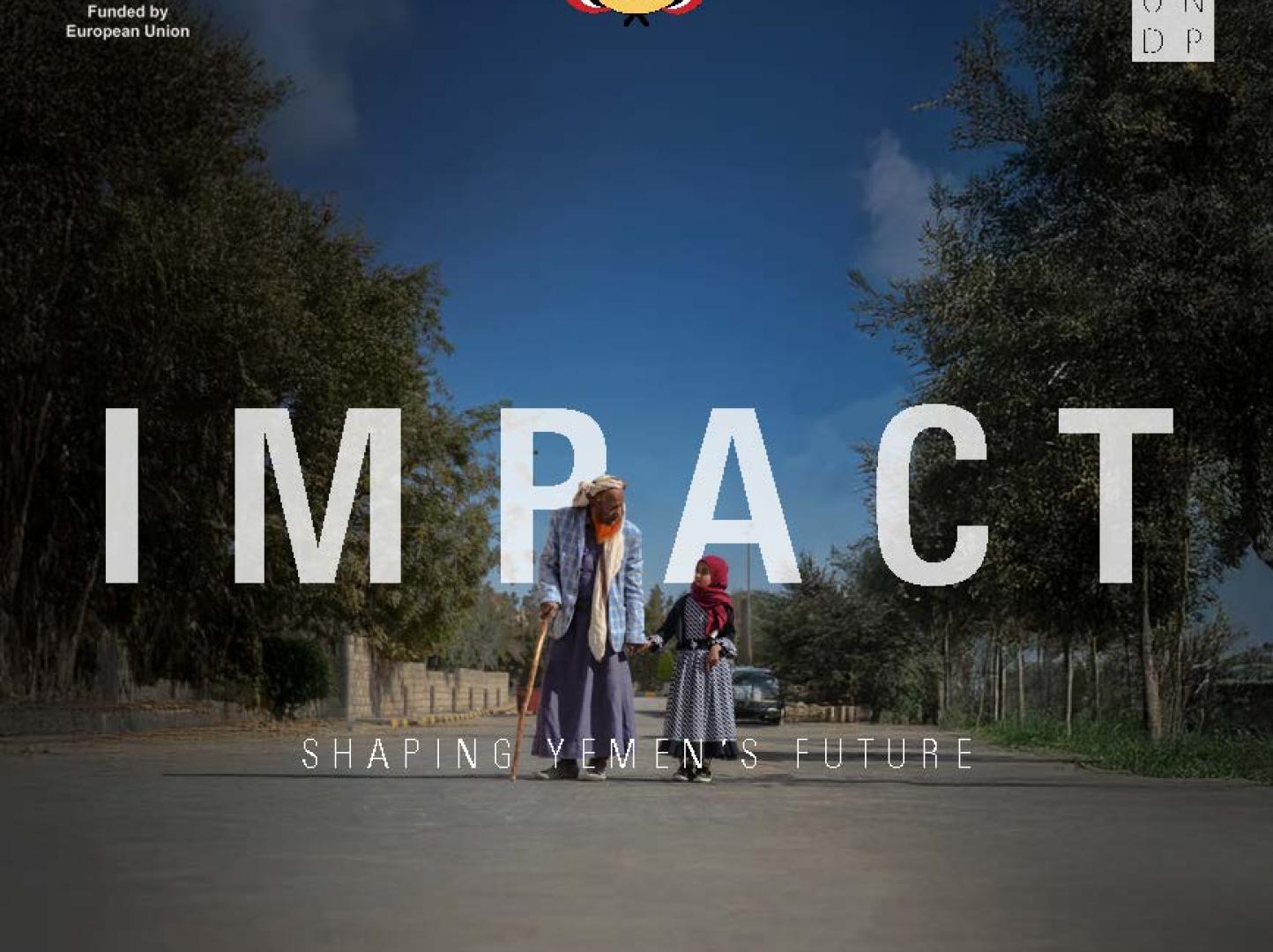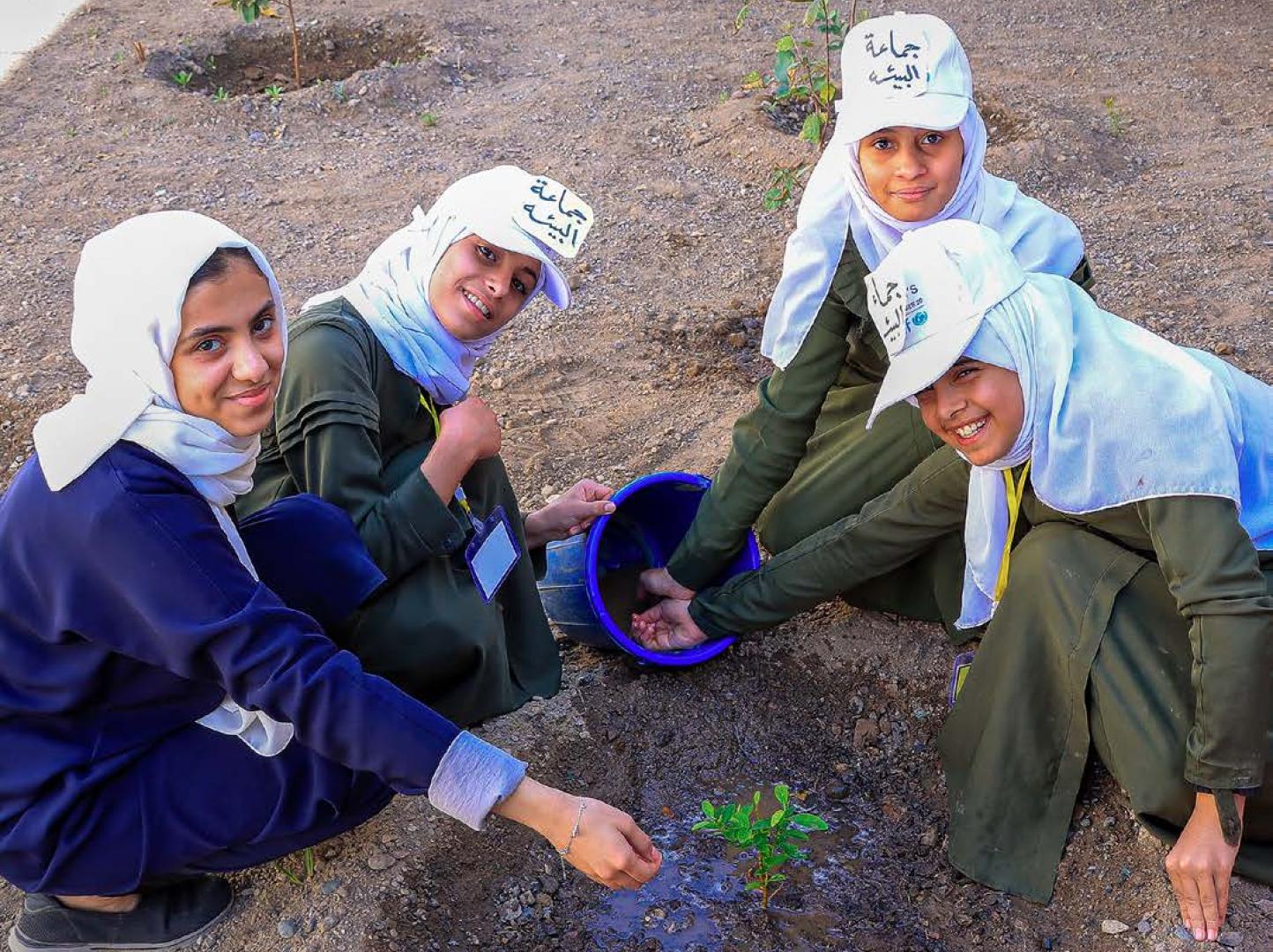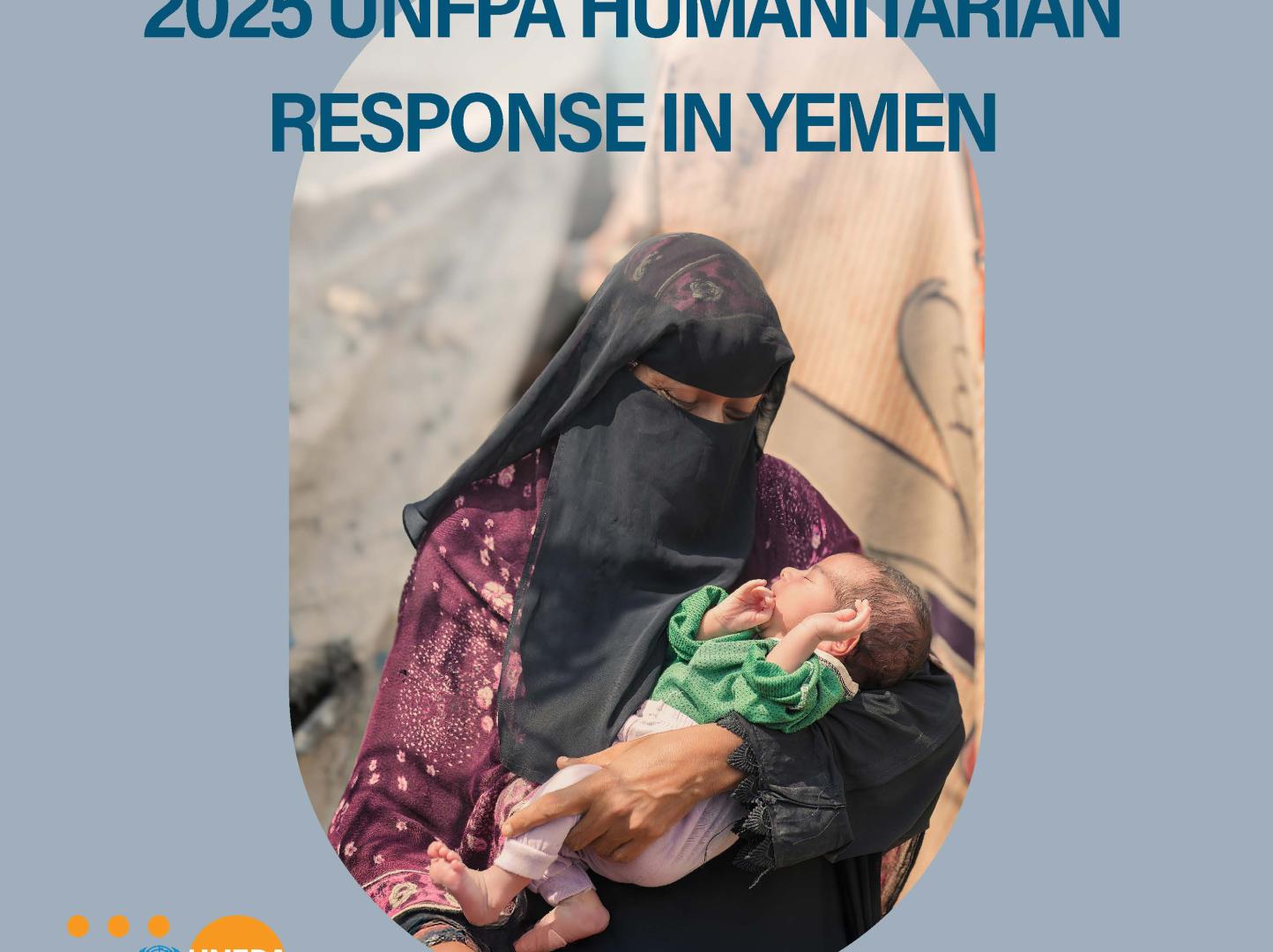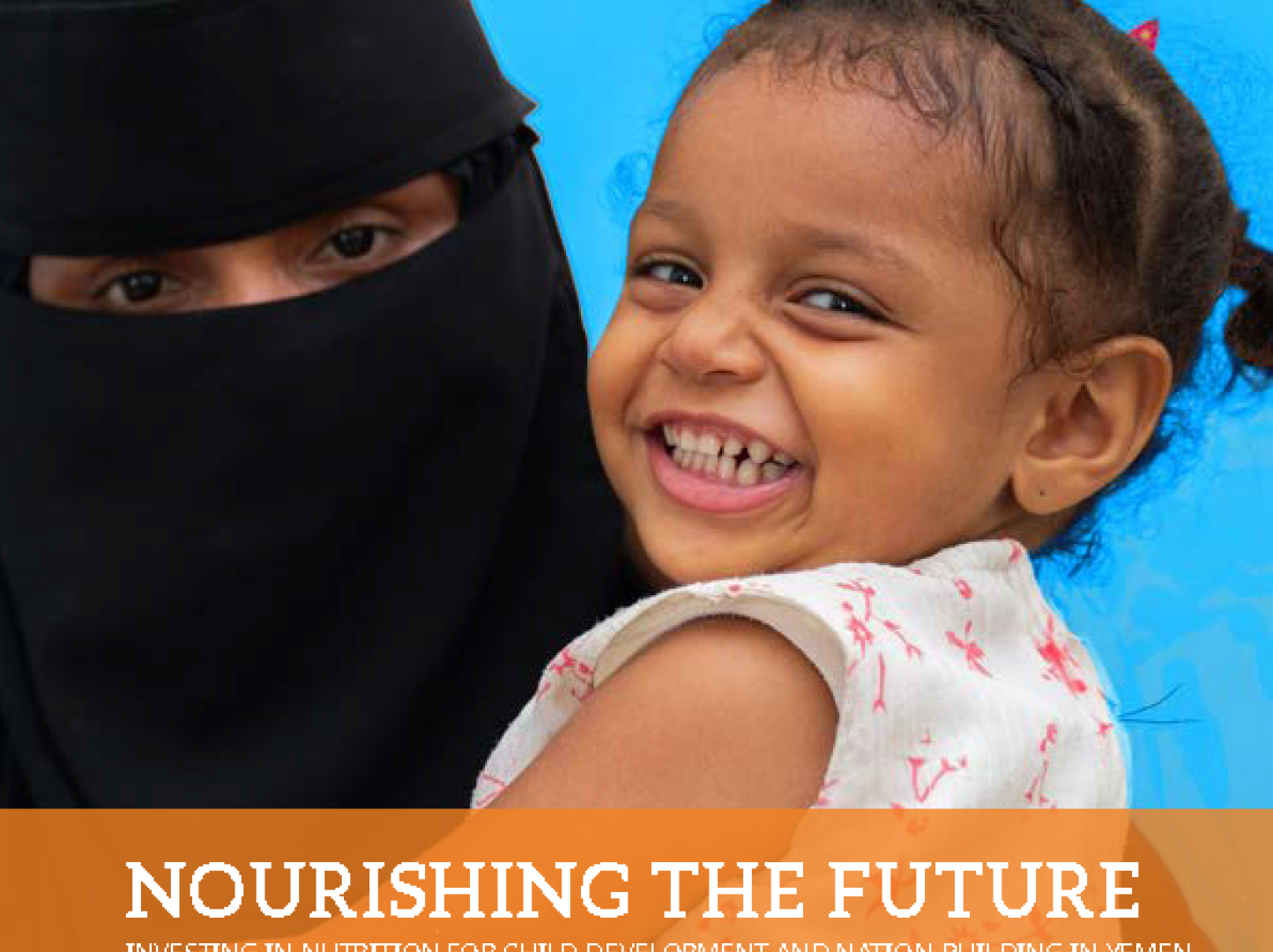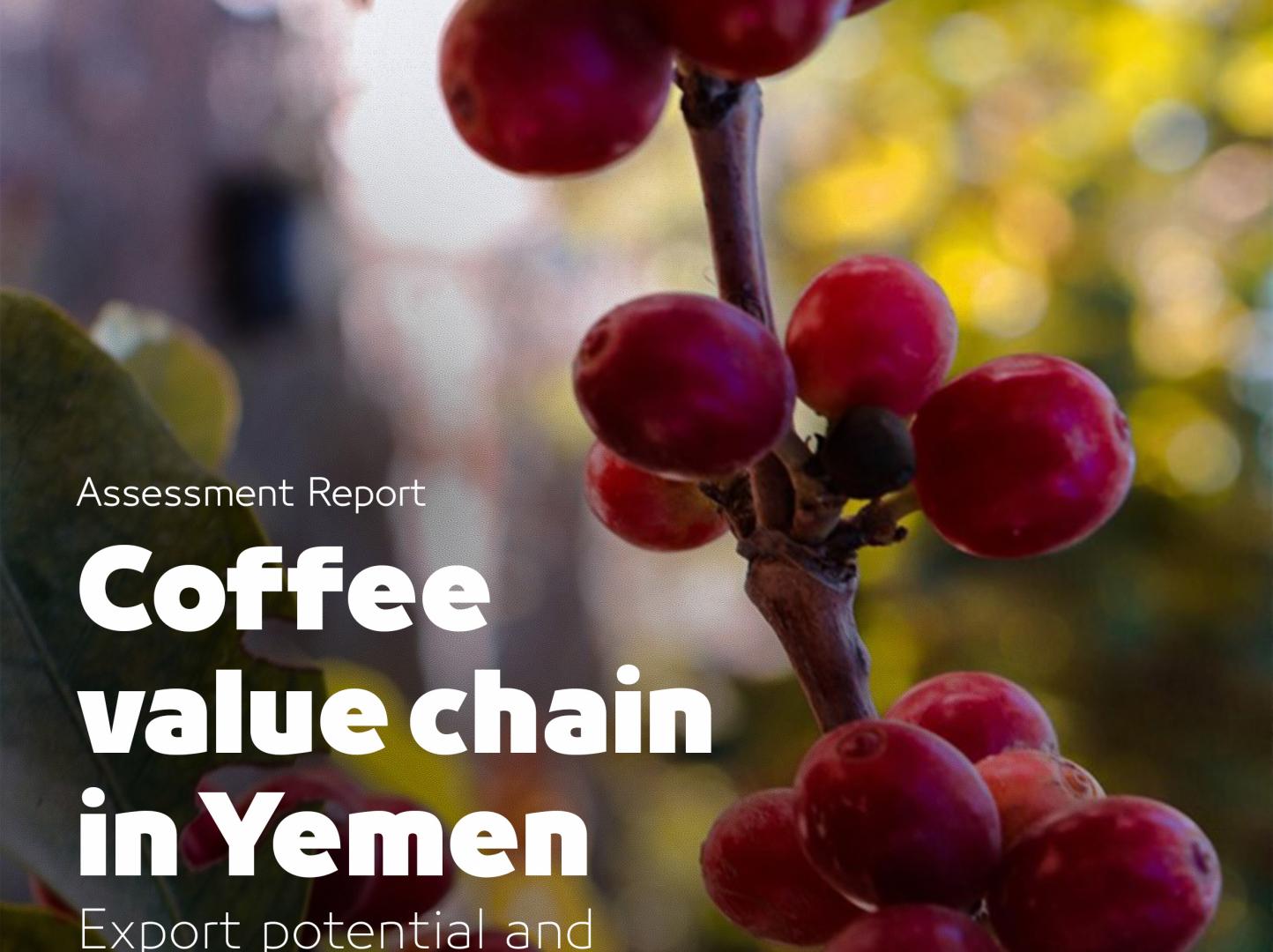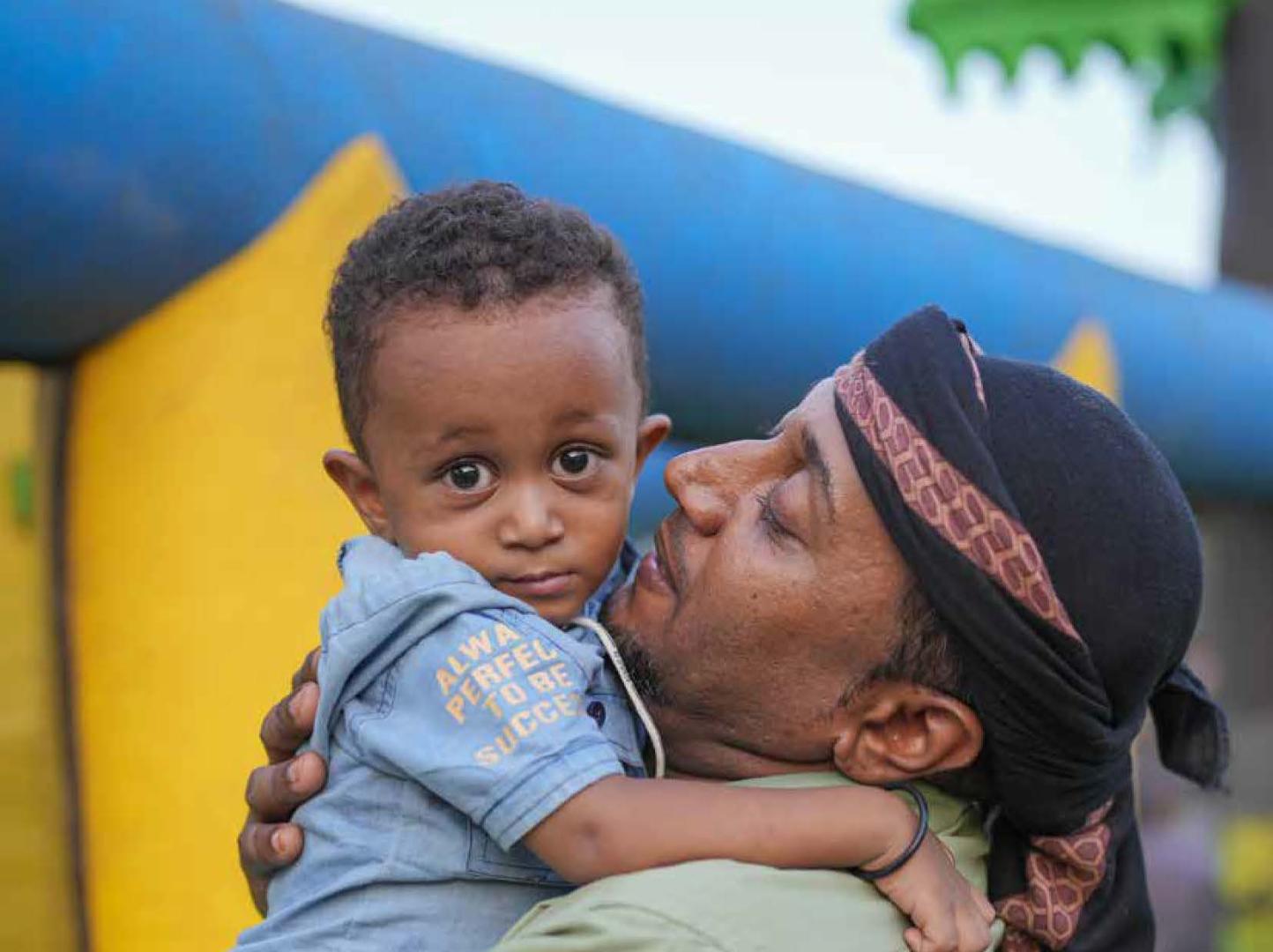Latest
Speech
17 February 2026
THE SECRETARY-GENERAL -- MESSAGE ON THE OCCASION OF THE BEGINNING OF RAMADAN
Learn more
Press Release
17 February 2026
UN Resident and Humanitarian Coordinator for Yemen Meets with Yemeni Minister of Planning and International Cooperation in Aden
Learn more
Speech
17 February 2026
Message by the UN Resident Coordinator and Humanitarian Coordinator for Yemen Julien Harneis on the occasion of the holy month of Ramadan
Learn more
Latest
The Sustainable Development Goals in Yemen
The Sustainable Development Goals are a global call to action to end poverty, protect the earth’s environment and climate, and ensure that people everywhere can enjoy peace and prosperity. These are the goals the UN is working on in Yemen:
Publication
28 April 2025
UN Yemen Country Results Report 2024
This report highlights the resilience of the Yemeni people and the collaborative impact of the United Nations Country Team and its partners in 2024. Despite immense challenges, significant strides were made in delivering essential development support, strengthening local capacities, and fostering pathways towards stability.Understand how the UN addressed critical needs in food security, healthcare, education, and livelihoods, while strengthening governance and promoting inclusive solutions. Discover the importance of strategic partnerships, innovative approaches, and the unwavering commitment to sustainable development goals in the Yemeni context.Download the full report to learn more about the UN's activities, achievements, and ongoing dedication to supporting Yemen's journey towards a peaceful and prosperous future.
1 of 5
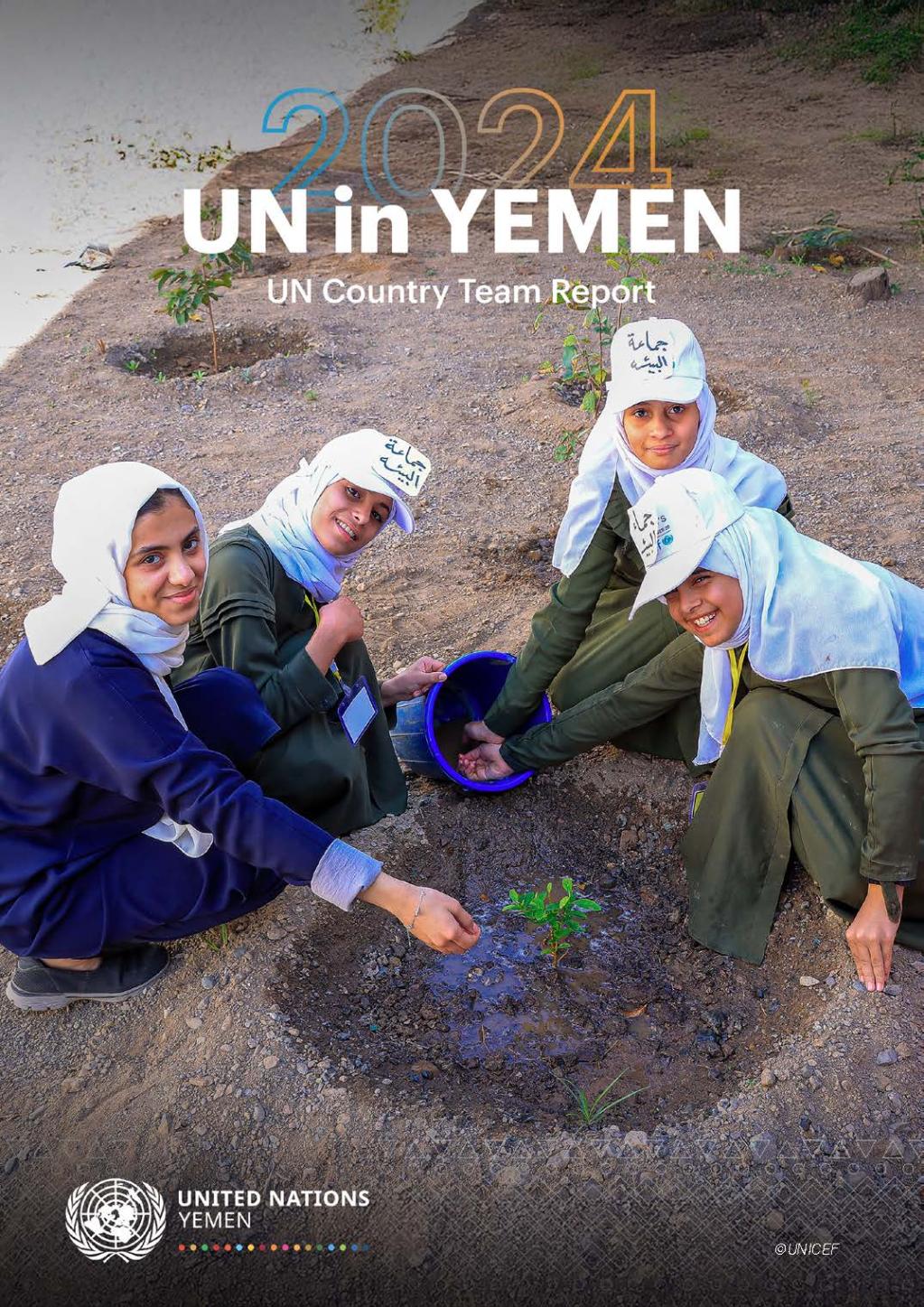
Press Release
05 September 2024
IOM Yemen: IOM Appeals for USD 13.3 Million to Help Hundreds of Thousands Affected by Yemen Floods
Yemen, 5 September – In response to the severe flooding and violent windstorms affecting nearly 562,000 people in Yemen, the International Organization for Migration (IOM) has launched a USD 13.3 million appeal to deliver urgent life-saving assistance. The unprecedented weather events have compounded the humanitarian crisis in the country, leaving thousands of internally displaced persons and host communities in dire need of assistance. “Yemen is facing yet another devastating chapter in its relentless crisis, exacerbated by the intersection of conflict and extreme weather events,” said Matt Huber, IOM Yemen’s Acting Chief of Mission. “IOM teams are on the ground, working around the clock to deliver immediate relief to families affected by this catastrophe. However, the scale of the destruction is staggering, and we urgently need additional funding to ensure that the most vulnerable are not left behind. We must act immediately to prevent further loss and alleviate the suffering of those impacted.” In recent months, torrential rains and flooding have destroyed homes, displaced thousands of families, and severely damaged critical infrastructure, including health centres, schools, and roads. Across multiple governorates, including Ibb, Sana’a, Ma’rib, Al Hodeidah, and Ta’iz, thousands of people have been left without shelter, clean water, or access to basic services, and scores of lives have been tragically lost. The storms have struck as the country grapples with a cholera outbreak and escalating food insecurity, further exacerbating the vulnerability of displaced families and strained health systems. As the harsh weather conditions are expected to continue, more households are at risk of displacement and exposure to disease outbreaks due to damaged water and health infrastructure. Ma’rib Governorate has been particularly hard-hit, with strong winds since 11 August severely damaging 73 displacement sites and affecting over 21,000 households. Public services, including electricity networks, have been severely affected, aggravating the crisis in one of Yemen’s most vulnerable regions. Urgent shelter repairs and cash assistance are needed, with healthcare services and sanitation infrastructure among the most immediate priorities. Since early August, floodwaters have damaged shelters, roads, water sources, and medical facilities, leaving over 15,000 families in Al Hodeidah and 11,000 in Ta’iz in desperate need of emergency support. These rains have not only led to tragic loss of life but have also wiped out entire communities’ belongings and means of survival. In response to this crisis, IOM is targeting 350,000 people with shelter, non-food items (NFI), cash-based interventions, health, camp coordination and camp management, and water, sanitation, and hygiene interventions. Distribution of water tanks, latrine repairs, and desludging efforts are ongoing in multiple sites, while health services are being expanded, with mobile teams currently treating over 100 individuals and referring critical cases to hospitals. IOM’s efforts are further supported by emergency response committees working tirelessly to register and verify affected households, relocate displaced families, and reduce the risks of further damage. However, the resources available are insufficient to cover the vast needs, with key gaps remaining, especially in the shelter and NFI sector. With no contingency stocks for essential relief items and the situation growing more critical by the day, immediate funding is necessary to address the most pressing needs on the ground. IOM stands ready to scale up its response but requires the necessary resources to do so. With further severe weather expected in the coming weeks and funding constraints, the Organization is urgently calling on the international community to support this appeal to continue providing lifesaving aid and address the overwhelming needs of those affected. To read the full appeal, please visit this page. For more information, please contact: In Yemen: Monica Chiriac, mchiriac@iom.int In Cairo: Joe Lowry, jlowry@iom.int In Geneva: Mohammedali Abunajela, mmabunajela@iom.int
1 of 5
Press Release
04 May 2023
Statement: Remarks at the pledging event for the FSO Safer operation co-hosted by the Netherlands and the United Kingdom
First, I want echo Achim’s thank you to the United Kingdom and the Netherlands for having organized this event.
And for contributing generously.
A third element that they both deserve credit for is recognizing early on the promise of a private-sector initiative to address the Safer which the Fahem Group and SMIT Salvage proposed in mid-2021 – a time when the previous UN plan to inspect the Safer was not moving.
The initiative called for a leading maritime salvage company to transfer the oil off the Safer and replace the decaying supertanker’s capacity.
That was the basis upon which the United Nations principals asked me to lead and coordinate UN system-wide efforts on the Safer, in September 2021.
In December 2021, United Nations senior management endorsed the UN-coordinated plan and asked UNDP to implement it, contingent upon donor funding.
In February 2021, I met with the Government of Yemen in Aden, which confirmed its support for the plan.
They have remained supportive ever since – as evidenced by a $5 million pledge that they made last year.
The Sana’a authorities had been favorable to the original initiative, but insisted that it be done under UN auspices.
In March 2022, they signed a memorandum of understanding with the UN that committed them to facilitating the operation.
A commitment that they continue to honor.
The agreement was also signed by myself with the Fahem Group, which has supported engagement in Sana’a on the initiative since 2021 on a voluntary basis.
By April 2022, the UN presented a draft operational plan to begin fundraising. The original budget for phase 1 and 2 was $144 million.
As Achim said, the Netherlands pledging event in The Hague last May brought in $33 million, which was a catalyst to move us to where we are today.
But finding funds to prevent a catastrophe proved far more difficult than finding money for a disaster.
In June, we launched a public crowdfunding campaign for the operation.
That has now brought in more than $250,000. More importantly, it captured media attention that galvanized further support for the plan.
In August, we received the first pledge from a private entity. $1.2 million from the HSA Group. The International Association of Oil and Gas Producers followed with a $10 million pledge and Trafigura Foundation with $1 million.
The private sector, we learned, was concerned about its liability linked to a contribution. UNDP, in particular, led the effort to resolve those issues of concern which gives us a basis for further private sector contributions.
By September last year, the UN met the target of $75 million to start the operation.
Unfortunately, even as UNDP was gearing up to begin, the cost of suitable replacement vessels surged, chiefly due to developments related to the war in Ukraine.
More money was also needed to start the initial phase because of the necessity to purchase a replacement vessel – also linked to the war in Ukraine as suitable vessels for lease were no longer available. The budget for the emergency phase – during which the oil will be transferred – is now $129 million. Most of the funding is now required up front in phase one. Now, the second phase only requires $19 million to complete the project.
So, the budget of $148 million is just $4 million more than was presented to donors a year ago.
Prior to today’s announcements, we had raised $99.6 million from member states, the private sector and the general public.
The general public has provided donations from $1 to $5,000.
The broad coalition working to prevent the catastrophe also includes environmental groups like Greenpeace and, in Yemen, Holm Akhdar.
Every part of the United Nations is involved, including the International Maritime Organization, the UN Environmental Progamme, and the World Food Progamme. The Office for the Coordination of Humanitarian Affairs is among those that have worked on the Safer file for years and has now ensured $20 million of bridging finance. That would need to be replenished by donor funding.
I also want to recognize the United States for playing a tireless role in mobilizing resources. It is among the top five donors, together with the Netherlands, Germany, the Kingdom of Saudi Arabia and the United Kingdom.
On 9 March, UNDP’s Administrator took the bold decision to purchase the replacement vessel Nautica – before all of the operation was in place.
That is because UNDP recognized the extraordinary problem and understood that the cost of inaction is too great, as Achim outlined.
UNDP also contracted the Boskalis subsidiary SMIT Salvage, which played an enormously helpful role in developing the UN plan long before it had a contract.
With both the Nautica and the SMIT vessel Ndeavor en route to Djibouti, we expect the operation to start before the end of the month.
Therefore, I thank all donors for the generous support, and we look forward to further generous support.
But the risk of disaster remains.
I am forever thankful to the heroic skeleton crew aboard the Safer that continues to do all it can to keep that vessel together until we can organize this salvage operation.
None of us will heave a sigh of relief until the oil is transferred.
And we will all heave a final sigh of relief when the critical second phase is completed. This requires that the project is fully funded as described.
As everyone has said we are just one step away so lets take the final step.
Thank you.
1 of 5
Publication
26 October 2022
UNITED NATIONS YEMEN SUSTAINABLE DEVELOPMENT COOPERATION FRAMEWORK 2022 – 2024
EXECUTIVE SUMMARY
UN global reform has elevated the United Nations Sustainable Development Cooperation Framework (UNSDCF) to be “the most important instrument for planning and implementing UN development activities” in the country. It outlines the UN development system’s contributions to reach the Sustainable Development Goals (SDGs) in an integrated way, with a commitment to leave no one behind, uphold human rights, Gender Equality and Women’s Empowerment (GEWE), and other international standards and obligations. The UNSDCF seeks to address the humanitarian, development and peace challenges in Yemen in an environment where key public institutions are fragmented, no national strategy exists, and where there has been no national budget since 2014. The Yemen UNSDCF outlines the UN’s collective priorities and development objectives to be reached jointly in the next three years 2022-2024 as part of an ongoing and longer- term vision for resilience building and forging of a pathway to peace.
Yemen is a country in conflict. The priorities of this UNSDCF are derived from the analysis of the impacts of this ongoing crisis on the people of Yemen, and the needs and opportunities as outlined in the UN’s Common Country Analysis (CCA) conducted in 2021.
The UN has prioritized four pillars that resonate with the SDG priorities of people, peace, planet and prosperity that aim, as a matter of urgency, to improve people’s lives in Yemen and build resilience that is equitable, inclusive, people-centred, gender responsive and human rights based, through outcomes that: 1. Increase food security, improving livelihood options, and job creation 2. Preserve inclusive, effective and efficient national and local development systems strengthening 3. Drive inclusive economic structural transformation 4. Build social services, social protection, and inclusion for all
The theory of change is driven by an expectation that by 2024 the impact for all people of all ages in Yemen affected by conflict, forced displacement and living in poverty in all its dimensions will experience change in the quality of their lives. This will be possible through increased food security and nutrition, livelihood options and job creation; preserved national and local development and systems strengthening; inclusive economic structural transformation and the building of social services, social protection and inclusion for all. Food security and nutrition, and sustainable and resilient livelihoods and environmental stability will be realized through effective food production and diversified food and nutrition security; and through sustainable climate sensitive environmental management. Rights-based good governance and inclusive gender sensitive improved public services and rule of law will be possible as a result of accountable, inclusive and transparent institutions and systems, as well as the building of trusted justice systems. Increased income security and decent work for women, youth and vulnerable populations will be realised through micro and macro-economic development and job creation. Strengthened social protection and basic social support service delivery focused on support to marginalized groups, and strengthening women and youth leadership in decision making processes will be supported through the preservation of social protection and expanded and effective social assistance and basic services.
The UNSDCF prioritises the population groups in Yemen that have the highest risk of being left behind due to the impact of conflict; economic, social, geographic or political exclusion; and marginalisation. Enacting the central transformative principle of the 2030 Agenda and the SDGs, whilst challenging in the Yemen context, does provide the lens through which the UNSDCF targets the most vulnerable and prioritise Leaving No One Behind.
On the basis that some groups in Yemen bear the brunt of the conflict due to forced displacement, livelihood disruption, food insecurity, limited social safety nets, increased levels of poverty and poor-
quality housing, the CCA 2021 identifies the following population groups at the greatest risk of being left behind:
- Women and girls - 73 percent of those displaced in Yemen are women and girls, especially women of reproductive age and adolescent girls
- Children – 60 percent of those killed directly by conflict are children under five
- Youth and adolescents – an estimated 2 million school-age girls and boys are out of school as poverty, conflict, and lack of opportunities disrupt their education
- Internally displaced persons – more than 4 million IDPs with 172,000 newly displaced in 2020 and almost 160,000 in 2021
- Refugees, asylum seekers and migrants – Yemen hosts approximately 138,000 migrants and 140,000 refugees and asylum seekers
- Persons with disabilities – 4.5 million Yemenis have at least one disability
- Ethnic and religious minorities – It is estimated that Muhamasheen represent 10 percent of the population living in marginalised conditions
The UNSDCF is comprised of four chapters. Chapter One: explores Yemen’s progress towards the 2030 Agenda through a detailed analysis of the country context drawing on the 2021 CCA. Chapter Two: presents the theory of change generally and per outcome area. Chapter Three: outlines the UNSDCF’s implementation plan focused on the management structure, resources, links to country programming instruments and Yemen’s Business Operations Strategy. Chapter Four: highlights the process for CCA updates, Monitoring and Evaluation and Learning. The Results Framework presents the outcomes and key performance indicators for monitoring agreed targets utilizing verifiable data sets. Two annexes capture the legal basis for all UN entities engaged in the UNSDCF and the mandatory commitments to Harmonised Approaches to Cash Transfers (HACT)1.
The UNSDCF represents the UN’s understanding that continued engagement in Yemen requires an operational architecture under-pinned by the Business Operations Strategy (BOS) and an integrated set of achievable programming priorities. These two strategic approaches of the UN system strengthen and make more inclusive the country’s national and local governance structures, and mainstream the required responses to the economic and health consequences of COVID-19. They tackle food insecurity and nutrition as a matter of priority and integrate the promotion and advancement of gender equality and women’s and girl’s empowerment.
UN global reform has elevated the United Nations Sustainable Development Cooperation Framework (UNSDCF) to be “the most important instrument for planning and implementing UN development activities” in the country. It outlines the UN development system’s contributions to reach the Sustainable Development Goals (SDGs) in an integrated way, with a commitment to leave no one behind, uphold human rights, Gender Equality and Women’s Empowerment (GEWE), and other international standards and obligations. The UNSDCF seeks to address the humanitarian, development and peace challenges in Yemen in an environment where key public institutions are fragmented, no national strategy exists, and where there has been no national budget since 2014. The Yemen UNSDCF outlines the UN’s collective priorities and development objectives to be reached jointly in the next three years 2022-2024 as part of an ongoing and longer- term vision for resilience building and forging of a pathway to peace.
Yemen is a country in conflict. The priorities of this UNSDCF are derived from the analysis of the impacts of this ongoing crisis on the people of Yemen, and the needs and opportunities as outlined in the UN’s Common Country Analysis (CCA) conducted in 2021.
The UN has prioritized four pillars that resonate with the SDG priorities of people, peace, planet and prosperity that aim, as a matter of urgency, to improve people’s lives in Yemen and build resilience that is equitable, inclusive, people-centred, gender responsive and human rights based, through outcomes that: 1. Increase food security, improving livelihood options, and job creation 2. Preserve inclusive, effective and efficient national and local development systems strengthening 3. Drive inclusive economic structural transformation 4. Build social services, social protection, and inclusion for all
The theory of change is driven by an expectation that by 2024 the impact for all people of all ages in Yemen affected by conflict, forced displacement and living in poverty in all its dimensions will experience change in the quality of their lives. This will be possible through increased food security and nutrition, livelihood options and job creation; preserved national and local development and systems strengthening; inclusive economic structural transformation and the building of social services, social protection and inclusion for all. Food security and nutrition, and sustainable and resilient livelihoods and environmental stability will be realized through effective food production and diversified food and nutrition security; and through sustainable climate sensitive environmental management. Rights-based good governance and inclusive gender sensitive improved public services and rule of law will be possible as a result of accountable, inclusive and transparent institutions and systems, as well as the building of trusted justice systems. Increased income security and decent work for women, youth and vulnerable populations will be realised through micro and macro-economic development and job creation. Strengthened social protection and basic social support service delivery focused on support to marginalized groups, and strengthening women and youth leadership in decision making processes will be supported through the preservation of social protection and expanded and effective social assistance and basic services.
The UNSDCF prioritises the population groups in Yemen that have the highest risk of being left behind due to the impact of conflict; economic, social, geographic or political exclusion; and marginalisation. Enacting the central transformative principle of the 2030 Agenda and the SDGs, whilst challenging in the Yemen context, does provide the lens through which the UNSDCF targets the most vulnerable and prioritise Leaving No One Behind.
On the basis that some groups in Yemen bear the brunt of the conflict due to forced displacement, livelihood disruption, food insecurity, limited social safety nets, increased levels of poverty and poor-
quality housing, the CCA 2021 identifies the following population groups at the greatest risk of being left behind:
- Women and girls - 73 percent of those displaced in Yemen are women and girls, especially women of reproductive age and adolescent girls
- Children – 60 percent of those killed directly by conflict are children under five
- Youth and adolescents – an estimated 2 million school-age girls and boys are out of school as poverty, conflict, and lack of opportunities disrupt their education
- Internally displaced persons – more than 4 million IDPs with 172,000 newly displaced in 2020 and almost 160,000 in 2021
- Refugees, asylum seekers and migrants – Yemen hosts approximately 138,000 migrants and 140,000 refugees and asylum seekers
- Persons with disabilities – 4.5 million Yemenis have at least one disability
- Ethnic and religious minorities – It is estimated that Muhamasheen represent 10 percent of the population living in marginalised conditions
The UNSDCF is comprised of four chapters. Chapter One: explores Yemen’s progress towards the 2030 Agenda through a detailed analysis of the country context drawing on the 2021 CCA. Chapter Two: presents the theory of change generally and per outcome area. Chapter Three: outlines the UNSDCF’s implementation plan focused on the management structure, resources, links to country programming instruments and Yemen’s Business Operations Strategy. Chapter Four: highlights the process for CCA updates, Monitoring and Evaluation and Learning. The Results Framework presents the outcomes and key performance indicators for monitoring agreed targets utilizing verifiable data sets. Two annexes capture the legal basis for all UN entities engaged in the UNSDCF and the mandatory commitments to Harmonised Approaches to Cash Transfers (HACT)1.
The UNSDCF represents the UN’s understanding that continued engagement in Yemen requires an operational architecture under-pinned by the Business Operations Strategy (BOS) and an integrated set of achievable programming priorities. These two strategic approaches of the UN system strengthen and make more inclusive the country’s national and local governance structures, and mainstream the required responses to the economic and health consequences of COVID-19. They tackle food insecurity and nutrition as a matter of priority and integrate the promotion and advancement of gender equality and women’s and girl’s empowerment.
1 of 5
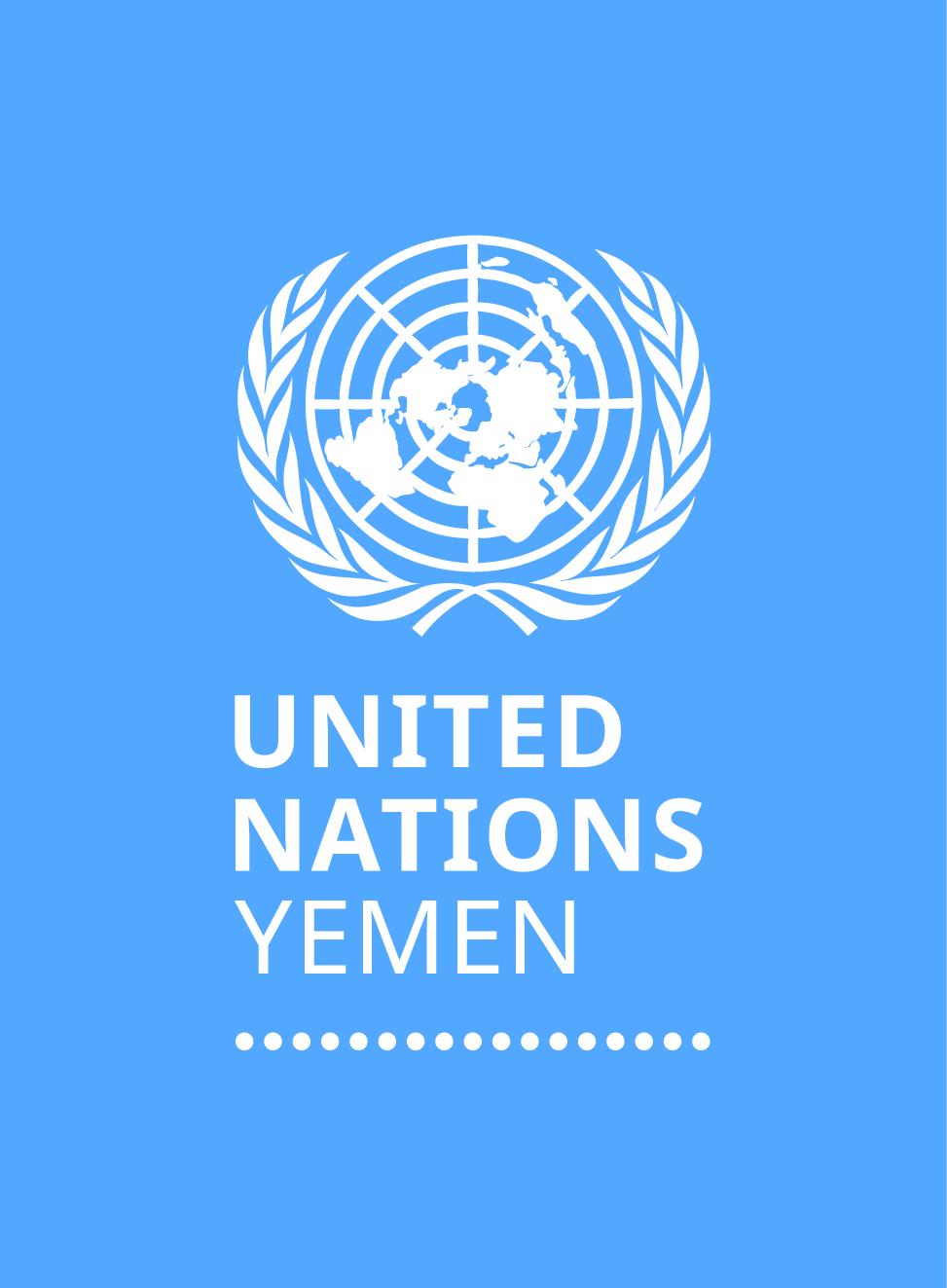
Press Release
15 August 2024
UNFPA/UNICEF Yemen: Life-saving aid critical as torrential rain sparks deadly floods across Yemen
Sana’a, 15 August 2024As relentless rain and catastrophic flooding in Yemen continue to exacerbate the suffering of families grappling with the impacts of poverty, hunger and protracted conflict, UNFPA, the United Nations Population Fund and UNICEF, the United Nations Children’s Fund, are delivering life-saving aid to some of the most vulnerable individuals through the Rapid Response Mechanism (RRM). With torrential rains forecast to continue into September, US$4.9 million is urgently needed to scale up the emergency response. Exceptionally heavy seasonal rains have caused flash floods in Yemen which are wreaking havoc in different parts of the country – the governorates of Al Hodeidah, Hajjah, Sa’ada, and Taizz are among the hardest-hit. Homes, shelters, and belongings have been swept away. Since early August, more than 180,000 people have been affected – over 50,000 people have been displaced in Al Hodeidah alone – a figure that is likely to rise in the coming days. Within 72 hours of the floods, over 80,000 people in flood-affected governorates had received emergency relief through the RRM, including ready to eat food rations, hygiene items, and women’s sanitary products. These items offer some immediate relief from the hardships caused by these catastrophic events. “The devastating floods have increased people’s needs, which are tremendous,” said Enshrah Ahmed, UNFPA Representative to Yemen. “Our RRM teams are working round the clock to provide immediate relief to affected families, but with rising needs and severe weather conditions forecasted, the coming weeks and months will be critical to ensuring affected families can pick themselves up and, at the very least, recover their lives.” In 2024, an estimated 82 percent of people supported through the RRM have been severely affected or displaced by climate-related shocks. As a result of the unseasonal levels of rain, the RRM cluster has had to spring into action, overstretching RRM teams, and depleting available supplies and resources. As needs continue to rise, RRM teams are struggling to reach affected families due to damaged roads, the erosion of landmines and unexploded ordnance from frontline to civilian areas. Items included in the RRM package are also in short supply. “The situation in the flooded areas is devastating. UNICEF and partners are on the ground providing urgently needed support to those impacted. The role of the Rapid Response Teams is critical in times of distress such as this one,” said Peter Hawkins, UNICEF Representative to Yemen.The RRM in Yemen was established in 2018 to provide a minimum package of immediate, critical life-saving assistance during human-made or natural disasters to newly displaced persons, and people in displacement sites or hard-to-reach areas, until the first line cluster response kicks in. The RRM ensures the distribution of immediate, ready-to-eat rations, basic hygiene kits provided by UNICEF, and women’s sanitary items provided by UNFPA, within 72 hours of a displacement alert. *** For more information, please contact UNFPA Taha Yaseen: Tel. +967 712 224090; yaseen@unfpa.org Lankani Sikurajapathy: Tel. +94773411614; sikurajapathy@unfpa.org UNICEF Kamal Al-Wazizah: Tel. +967 712 223 06; kalwazizah@unicef.org
1 of 5
Story
15 February 2026
UN-Habitat Yemen: After 16 Years, Yemeni sisters win rightful share of family home
This story comes ahead of the resumed second session of the United Nations Habitat Assembly, taking place from 29 to 30 May 2025 in Nairobi, which will feature, among others, a high-level dialogue on adequate housing for all.When Hala Mohammad’s father passed away in 2007, he left behind a house in Yemen’s Abyan governorate. What followed was a long, difficult inheritance dispute that stretched over 16 years.While Hala and her four sisters expected to share the property with their brothers, the brothers claimed the house for themselves – arguing that the sisters were already living with their husbands and didn’t need a share.But those homes, Hala explains, were not theirs. “They belonged to our husbands. We had no property of our own.”In Yemen, this situation is not uncommon. According to ACAPS, only 10 to 20 per cent of women in the country have secure land or housing tenure. Inheritance disputes, often shaped by tradition and social expectations, make it difficult for women to claim their rights.A rapid assessment by the Norwegian Refugee Council (NRC) found that 29 per cent of women surveyed had never claimed their inheritance, often due to social pressures or fear of backlash. Some even face threats or violence when attempting to do so – a form of gender-based violence.For years, Hala and her sisters sought help from community leaders and neighbours. One brother had moved into the disputed house, while their mother moved between her daughters’ homes. Though there was talk of selling the house, negotiations repeatedly stalled. Social norms discouraged taking legal action against family members, and no resolution was found.Things changed when Hala was invited to an awareness session on housing, land, and property (HLP) rights conducted by UN-Habitat’s legal team in Aden. “It helped us understand that we had legal rights – and we weren’t alone,” Hala said.After the session, Hala and her sisters received legal counselling. Equipped with new information and confidence, they approached their uncle and the local mosque to help mediate. With growing understanding and support, their brothers eventually agreed to sell the house and share the proceeds with their sisters.Today, the sisters and their mother are preparing to buy a new home together in Abyan – a shared space that they can call their own.Hala’s story reflects the goals of UN-Habitat’s project “Support to Housing, Land and Property Rights for Vulnerable Communities and Improve Land Tenure Security of Women in Yemen”. Since its launch, the project has reached over 20,000 people through awareness sessions, legal advice, mediation support, and capacity-building for local authorities.By combining community engagement with legal empowerment, the project helps strengthen tenure security for women – and supports long-term social cohesion and peacebuilding across Yemen.
1 of 5

Story
12 February 2026
WHO Yemen: When every minute counts: Emergency trauma care saving lives in Marib and Taiz
Aden, Yemen In Yemen, emergencies arrive without warning – and often in numbers that overwhelm fragile health systems. Across Marib and Taiz, hospitals are receiving a steady flow of patients injured by road traffic crashes, explosions and gunfire. Many arrive in critical condition. For them, survival depends on minutes: on whether trained teams are available, operating theatres are functional and essential supplies are within reach. At Marib General Hospital, one of the country’s busiest referral facilities, trauma cases frequently arrive in waves. Dr Abdulrab Al-Salihi, a general surgery consultant who has worked at the hospital since its establishment, describes the pressure facing frontline teams: “Sometimes we receive 5 to 15 critical cases at the same time – from traffic accidents, explosions, or shootings. We must triage immediately and act fast to save lives.”Marib now hosts one of the largest populations of internally displaced people in Yemen, placing extraordinary strain on already stretched health services. Despite these challenges, emergency surgeries continue around the clock – saving women, young adults and families arriving with little more than hope.According to Abdulkareem Ali Hussein Hamid, Acting Chairman of the Marib Hospital Authority, recent support has made a tangible difference in how emergencies are managed. He explains that the presence of supported surgical teams has reduced waiting times and improved staff efficiency in handling complex and critical cases, strengthening the hospital’s overall emergency response capacity.These gains are being sustained through strengthened emergency systems supported by the World Health Organization (WHO), with funding from the European Civil Protection and Humanitarian Aid Operations (ECHO), helping ensure that operating theatres remain functional and life-saving care continues when it is needed most. Between October and December 2025, this support translated into tangible, life-saving impact across three referral hospitals—Al Thawrah and Al Gamhouri hospitals in Taiz, and Marib General Hospital. More than 700 surgical procedures were performed, restoring mobility and saving lives, while 3,572 patients received critical consultations, triaging, and timely care. For frontline staff, however, impact is not measured in numbers alone, but in lives touched. Salma Abdulilah Abdullah Shard, a pharmacist at Marib General Hospital, recalls a moment that continues to define her work: “A child was brought to the emergency room with no heartbeat. The team continued resuscitation for more than 40 minutes. When the heartbeat returned, it felt as if life itself had been restored.”Hundreds of kilometres away, the same urgency defines care at Al-Thawra General Hospital in Taiz. Once severely damaged by years of conflict – some facilities losing up to 80–90% of their capacity – the hospital is gradually restoring emergency and surgical services and now serves patients from four neighbouring governorates.For patients, the impact of improved emergency care is immediate and deeply personal. Ibrahim Ali Ghaleb, who was rushed to Al-Thawra Hospital after a serious road accident, recalls the speed and coordination of the response: “All the doctors came immediately and worked as one team. I was treated, taken to surgery and cared for without neglect. This hospital saves lives and needs continued support.”Across both Marib and Taiz, emergency trauma care remains fragile – but operational. Surgeons work through the night, pharmacists manage scarce supplies and generators keep operating theatres running during power cuts.With ECHO’s support, these hospitals are not only responding to emergencies – they are restoring trust, dignity and the chance of survival for people injured by conflict and displacement.In a country where every minute can decide a life, this support is not optional.
It is lifesaving.
It is lifesaving.
1 of 5

Story
10 February 2026
IOM Yemen: Weathering the Storm: Displaced Families Reclaim Stability with Cash Support
By:Written by Haithm Abdulbaqi | Media and Communications AssistantEdited by Mennatallah Homaid | Senior Communications AssistantMa’rib, Yemen In Al Jufainah, one of Yemen’s largest displacement sites, more than 16,000 families continue to live far from their places of origin, navigating prolonged displacement, fragile shelter conditions, and limited livelihood opportunities. For many, each season brings renewed uncertainty, as sudden shocks such as heavy rains and flooding compound existing vulnerabilities. During such times—when families struggle to provide, endure hardship, and maintain stability—support that helps meet basic needs with dignity becomes crucial.Ahmed was displaced from Al Jarrahi District in Al Hodeidah Governorate four years ago, after insecurity, ongoing conflict, and the collapse of economic opportunities made it impossible for his family to remain. Seeking safety and a sense of stability, he moved with his wife and three children to Al Jufainah, where they continue to live in displacement.Life in displacement has brought persistent challenges. Each morning, Ahmed walks into Ma’rib city to his small cobbler’s stall—his sole source of income. Working from a modest, makeshift space, he repairs worn shoes, earning just enough on some days to cover basic needs. The irregular income leaves the family vulnerable to even minor disruptions. “I cannot read or write, and neither can my wife,” Ahmed said quietly. “I don’t want my children to grow up the same way.” Despite his efforts to prioritize their education, he and his family continue to live in extremely fragile conditions. Their shelter offers little protection against harsh weather, and Ahmed’s limited income is rarely enough to consistently cover food, safe water, and school supplies. Like many displaced families in Al Jufainah, they live with the constant fear that one unexpected shock could undo what little stability they have managed to build.Three months ago, heavy rains swept across Ma’rib, continuing late into the night and triggering flooding in parts of Al Jufainah displacement site. For Ahmed’s family, the impact was immediate. Water began seeping into their shelter, soaking their belongings and leaving them exposed to the storm.“That night, my wife and I kept praying the rain would stop,” Ahmed recalled. “The water kept rising inside the tent. I carried my youngest child in my arms, asking God to protect us until it ended.” By morning, families across Al Jufainah were surveying the damage left by the floods, many having lost food and basic household items overnight. With shelters inundated and urgent needs unmet, community members sought help wherever they could. Bassam, a site mobilizer, visited affected households—including Ahmed’s—and quickly reported urgent cases to response teams. Shortly after, the International Organization for Migration (IOM) deployed field staff to conduct rapid assessments, determined which families required immediate support, providing both reassurance and essential aid.“They took my information and made sure we were safe,” Ahmed said. “The next day, they gave us a food basket. It was exactly what we needed.”Following the initial response, IOM’s field team returned to Ahmed’s shelter to assess the full impact of the flooding. Based on this assessment, he qualified for emergency support and was enrolled in the Multi-Purpose Cash Assistance programme—a response designed to help households recover from sudden shocks while giving families the flexibility to prioritize their own needs.Shortly afterward, Ahmed received a text informing him that money was waiting for him at the bank. Unable to read it himself, he asked a friend to explain.“I was told there was money waiting for me at the bank,” he said. “It felt like a mountain was lifted off my chest.” Ahmed received around $170 through the Multi-Purpose Cash Assistance programme. With the cash, he was able to take his youngest son to a doctor after the child was hit by a motorcycle inside the site.“The driver didn’t have money either,” Ahmed explained. “I didn’t pressure him. I just needed to make sure my son was treated.”He also used part of the cash to purchase a small stove and school supplies for his daughter. “Education is the most important thing for my children,” he said. “This assistance helped me protect that.” Just a few blocks away, 21-year-old Kamal Abdullah vividly recalls that night. Displaced from Ta’iz, he has been living in Ma’rib for seven years, initially with his grandmother before marrying and starting his own family. During the storm, he, his wife, and three children huddled inside their shelter, fearing it might not withstand the heavy rain and winds.“The wind was so strong, and my children were terrified,” Kamal said. “My wife and I were worried our shelter would collapse. I held them close until the rain stopped, praying we could move them somewhere safer.”When he heard that IOM teams were assessing families affected by the floods, Kamal left his shelter in search of help. There, he met Mohammed, an IOM field assistant working in Al Jufainah. “I told him what happened,” Kamal said. “He came into our shelter and saw the damage—the roof leaking, our food soaked, and all our rations and clothes ruined. He listened carefully, took my information, and promised to follow up soon.” The next day, Kamal received an emergency response package through the Rapid Response Mechanism (RRM), including food, clean water, blankets, and hygiene items. This critical support helped his family survive the immediate impact, protect their health, and begin stabilizing their living conditions.These response packages are part of a coordinated effort by IOM, the United Nations Population Fund (UNFPA), and the United Nations Children’s Fund (UNICEF). Under this first-line response mechanism, UNFPA provides Dignity Kits, UNICEF provides Hygiene Kits, the World Food Programme (WFP) provides Food Baskets, and IOM takes the lead in distributing these packages and providing one-off Emergency Multi-Purpose Cash Assistance (MPCA)—a vital lifeline that gives families the flexibility and dignity to address their most urgent needs and regain stability after a crisis.Building on this support, Kamal received Multi-Purpose Cash Assistance, enabling him to prioritize his family’s most pressing needs and take charge of their recovery. “I realized with the money I could make a change, finally,” he said. “Instead of searching for work every day, I borrowed a little more money and started a small grocery shop.” Kamal’s shop is modest: a small iron shelter stocked with soft drinks, children’s snacks, and a few basic food items. His wife works alongside him, restocking shelves and assisting customers. “It’s humble,” Kamal said with a smile, “but one day it will be bigger, Inshallah.”The Multi-Purpose Cash Assistance programme, funded by the European Aid (ECHO), supports families during sudden crises across Yemen, providing critical aid to more than 2,100 households nationwide, including 664 in Ma’rib Governorate.Today, Ahmed continues to fix shoes to keep his children in school, while Kamal and his wife gradually expand their small grocery shop. Despite ongoing challenges in Al Jufainah, families—like Ahmed and Kamal’s—are regaining stability and control over their lives, one step at a time.
1 of 5

Story
08 February 2026
WHO Yemen: Reaching the Unreachable: Accelerating Onchocerciasis Elimination in Yemen
Aden, Yemen In Yemen’s remote high-altitude valleys, communities have lived for generations with sowda, a severe form of onchocerciasis (commonly known as “river blindness”), that causes debilitating skin disease, stigma and long-term suffering. Years of conflict, rugged terrain and chronic funding gaps have left many families without access to treatment. In 2025, that reality began to change. Under the leadership of the Ministry of Public Health and Population, and with technical and operational support from WHO, Yemen implemented one of its most ambitious onchocerciasis mass drug administration (MDA) campaigns yet – reaching populations long considered unreachable.Reflecting on this shift, Dr Ali Al-Waleedi, Deputy Minister for the Primary Health Care Sector, observes that for decades entire families had lived with sowda without ever receiving treatment. He says the campaign fundamentally changed that reality, as health teams crossed mountains, facing insecurity and isolation, to reach every household – demonstrating that no community in Yemen is unreachable when commitment and the right strategy come together.In December 2025, WHO supported the Ministry of Public Health and Population to redesign the MDA approach, moving from static distribution points to an intensive door-to-door strategy across 10 high-priority districts in Hajjah and Al-Mahweet governorates and 6 highly-endemic districts of Taiz governorate. Despite the difficult terrain and insecurity, the adapted approach achieved full geographical access, reaching 91% population coverage in Hajjah and Al-Mahweet and 86.5% in Taiz – well above the WHO-recommended 80% threshold for effective disease control.Community leadership proved decisive. Dr Ahmed Thabit, National Professional Officer at WHO Yemen, highlights that the campaign was driven by communities themselves. With WHO’s guidance, local volunteers – especially women – became the backbone of implementation, building trust, entering homes that had never been reached before and ensuring every dose protected a life. In Hajjah and Al-Mahweet, 419 community health volunteers, more than half of them women, safely administered over 732 000 donated Mectizan® tablets, protecting hundreds of thousands of people from infection.Sustaining these gains amid shrinking resources was equally critical. Earlier, in September 2025, WHO had worked closely with the Ministry of Public Health and Population and partners to prevent a dangerous interruption of MDA activities in the 6 highly-endemic districts of Taiz. Dr Nasreen, Director of the Negelected Tropical Disease Programme at the Minsitry, notes that at a time when funding gaps threatened to reverse years of progress, maintaining treatment was essential to prevent resurgence. By optimizing limited resources and using 470 179 donated Mectizan® tablets, the campaign safeguarded hard-won gains and kept Yemen on track toward eliminating onchocerciasis as a public health problem by 2030.Together, these efforts show that elimination is possible – even in conflict-affected and resource-constrained settings. By adapting delivery strategies, empowering communities and sustaining partnerships, WHO and the Ministry of Public Health and Population continue to translate global commitments into life-changing impact for Yemen’s most vulnerable populations.These achievements prove that with targeted investment, adaptive strategies and community leadership, even the most complex challenges can be overcome. By sustaining treatment, empowering volunteers and protecting hard-won gains, WHO and the Ministry of Public Health and Population are keeping Yemen on track to eliminate onchocerciasis as a public health problem by 2030. Continued financial support from partners – through the integration of vector control and MDA activities for all neglected tropical diseases – is critical to ensure that progress is not only maintained but accelerated until elimination is reached.
1 of 5

Story
28 January 2026
UNFPA Yemen: From warehouses to women’s lives: How medical supplies are saving mothers in Yemen
Abyan and Al Dale' Governorates, Yemen In Yemen, where pregnancy and childbirth can quickly become life-threatening, a woman’s survival often depends on something she never sees: whether essential medicines are available when she needs them most. Behind every emergency intervention is a supply system working quietly in the background, ensuring that life-saving reproductive health supplies reach health facilities across the country.In Abyan and Al Dale’ governorates, reproductive health warehouses play a central role in keeping this system running. In Abyan, supplies are distributed to 169 health facilities across 11 districts. In Al Dale’, medicines from the warehouse serve between 3,000 and 4,000 women every month. Yet for years, poor infrastructure threatened their ability to function. Leaking roofs, frequent power outages and extreme heat compromised storage conditions, putting temperature-sensitive medicines such as oxytocin–an essential drug used to control bleeding during and after childbirth–at risk.“Parts of the roof started falling on us while we were working,” recalls Dr. Somaya Mohammed Ahmed, a UNFPA, United Nations Population Fund, Reproductive Health Supply Officer in Abyan. Supply chains behind life-saving careTo address these challenges, UNFPA, with funding from the Kingdom of the Netherlands through the UNFPA Supplies Partnership, and in collaboration with local partner Field Medical Foundation (FMF), supported the rehabilitation of reproductive health warehouses in both governorates. The renovations tackled long-standing structural damage, improved storage conditions and introduced reliable power solutions to protect critical medicines.In Al Dale’, warehouse manager Dr. Ali Abdullah Saleh describes the transformation. “Before, there was no proper lighting or cooling, and rainwater damaged the medicines. Now the warehouse is protected, the temperature is stable and supplies can be stored safely.” From storage to facilitiesThe impact of these improvements is felt far beyond the warehouse walls. By ensuring medicines are stored correctly and distributed on time, the strengthened supply chain supports health workers on the front lines—where shortages or delays can cost lives.At the Reproductive Health and Maternity Centre in Zinjibar District, Abyan Governorate–supported by UNFPA with local partner FMF–that reliability saved the life of Sajda Nasser, 32. Already weakened by a complicated pregnancy, Sajda began bleeding heavily while travelling back from a remote area. By the time she reached the health centre, she had lost her baby and was in shock and unconscious.“I don’t remember anything,” she says. “I only heard the doctors saying, ‘She died, she died.’” When medicines are available, women surviveSajda was given oxytocin to control the bleeding, along with intravenous fluids to stabilize her condition. The medicines were available on site and had been stored at the correct temperature, ensuring their effectiveness.“When medicines are available, we can respond quickly and save lives,” Midwife Waheba explains. “When they are not, families have to search outside the facility, and that delay can be fatal.” Most maternal deaths she witnesses at the centre, whether following childbirth or after a miscarriage, are caused by bleeding. Sajda survived. Today, she has regained her strength and plans to return to the centre for family planning services, which—like all care provided at the facility—are free of charge. “If this centre did not exist, I believe I would have died,” she says. In a country where around three women die every day from pregnancy- and childbirth-related causes, and where the majority of these deaths are preventable with timely access to quality care, investments in infrastructure are investments in women’s lives. By supporting the rehabilitation of reproductive health warehouses, funding from the Netherlands is helping to ensure that essential medicines reach health facilities safely and reliably—protecting mothers, strengthening health systems and saving lives.
1 of 5

Press Release
17 February 2026
UN Resident and Humanitarian Coordinator for Yemen Meets with Yemeni Minister of Planning and International Cooperation in Aden
Aden, 17 February 2026 On 16 February 2026, H.E. Dr. Afrah Abdulaziz Al-Zouba, Minister of Planning and International Cooperation, received Julien Harneis, United Nations Resident Coordinator and Humanitarian Coordinator for Yemen, to review progress in the preparation of the Humanitarian Needs and Response Plan 2026 and the UN Cooperation Framework 2027–2029, and to discuss ways to further strengthen cooperation between the Ministry and the United Nations.The meeting was attended by the Deputy Minister of Planning and International Cooperation, Dr. Nizar Bashehib; the Ministry’s Undersecretary for International Cooperation, Omar Abdulaziz; the Undersecretary for Projects, Eng. Wazira Al-Sharmani; the Yemen Country Director of the United Nations Office for the Coordination of Humanitarian Affairs (OCHA); and a UN Development Coordination Officer.
1 of 5
Press Release
12 February 2026
World Health Organization appeals for urgent health funding to protect millions of lives in Yemen in 2026
Aden, Yemen The World Health Organization (WHO) is appealing for US$ 38.8 million to deliver life-saving emergency health assistance to 10.5 million people across Yemen in 2026, as the country enters another year of protracted conflict, disease outbreaks, climate shocks and deepening humanitarian needs. After more than a decade of crisis, Yemen continues to face one of the world’s most complex health emergencies. An estimated 23.1 million people require humanitarian assistance, while only around 60% of health facilities remain fully functional, leaving millions without reliable access to essential care.“Yemen’s health system is stretched to its limits,” said Dr Syed Jaffar Hussain, WHO Representative and Head of Mission in Yemen. “Without sustained and timely funding, preventable diseases will spread unchecked, health facilities will be forced to scale down services, and the most vulnerable communities will pay the highest price.”Yemen continues to experience multiple, concurrent disease outbreaks, including cholera, measles, dengue fever and polio, driven by low immunization coverage, unsafe water and sanitation, population displacement and limited access to care. Climate-related shocks, including floods and extreme weather, are intensifying transmission risks and damaging already fragile health infrastructure.At the same time, acute malnutrition remains a major public health threat. Millions of children are affected, with hundreds of thousands facing severe acute malnutrition requiring urgent medical treatment. Without access to timely health and nutrition services, children remain highly vulnerable to preventable and life-threatening infections.In 2026, under the Humanitarian Reset, WHO’s response in Yemen will prioritize life-saving and time-critical interventions in areas with the highest needs. Through its leadership of the Health Cluster, WHO will continue to strengthen disease surveillance and rapid response, ensure access to essential medicines and supplies, deploy mobile and surgical teams, support immunization campaigns, and build national capacity to sustain essential health services.“Every delay in funding translates into lost opportunities to save lives,” Dr Hussain added. “This appeal is not only about responding to emergencies – it is about preserving the foundations of Yemen’s health system and preventing further human suffering.”WHO calls on international partners and donors to urgently scale up support to ensure that critical health services remain available to communities across Yemen throughout 2026.Related linksWHO Health Emergency Appeal for Yemen 2026Media contactsWHO Yemen CommunicationsEmail: mediayemen@who.intAbout WHOFounded in 1948, the World Health Organization (WHO) is the United Nations agency dedicated to promoting health, keeping the world safe and serving the vulnerable. WHO leads global efforts to expand universal health coverage, coordinate responses to health emergencies and advance well-being for all.
1 of 5
Press Release
12 February 2026
UNOPS Yemen: Japan, UNOPS Strengthen the Operational Capacity of Yemen Customs
Riyadh, 12 February 2026 The Government of Japan and the United Nations Office for Project Services (UNOPS) signed a new agreement to support the Yemen Customs Authority (YCA). With the funding of 732 million Japanese yen (approximately USD 4.6 million), the “Project for the Improvement of Customs Functions at Major Ports” will procure cargo inspection devices and the necessary spare parts to enhance the efficiency of customs clearance procedures at targeted border ports. In addition, this initiative will equip the YCA Disaster Recovery Site (DRS) with essential IT infrastructure enabling the operationalization of the centralized data recovery facility and supporting the modernization of Yemen’s customs operations.H.E. Mr. Yoichi Nakashima, Ambassador Extraordinary and Plenipotentiary of Japan to the Republic of Yemen, remarked “This assistance is, by enhancing customs infrastructure and capacity development, to strengthen the rule of law, support revenue collection for national economy, and safeguard and facilitate essential supply chains including humanitarian assistance for the Yemeni people. Japan reaffirms its commitment together with UNOPS and other partners to supporting nation building efforts by the Yemeni people.”Muhammad Usman Akram, Representative and Director of UNOPS Multi-Country Office in Amman, stated: “Today marks a significant step forward in strengthening the Yemeni Customs Authority through vital and much appreciated funding from our longstanding partner - the Government of Japan. The measures proposed under this project are important to revitalizing and modernizing the Yemeni Customs, while enhancing efficiency of the custom procedures. UNOPS remains committed to supporting the efforts of the Government of Yemen towards reconstruction and sustainable development with the valuable support of the international community.” The project contributes to the 2025 Yemen Humanitarian Needs and Response Plan Strategic Objective 2 related to improving and maintaining non-discriminatory access to basic services and building resilience. It also contributes to SDG 8: Decent Work and Economic Growth, Goal 16: Peace, Justice, and Strong Institutions and Goal 17: Partnerships for the Goals.- END -About UNOPS: UNOPS offers practical solutions to the UN and other partners, across peace and security, humanitarian and development operations. UNOPS mission is to help people build better lives and countries achieve peace and sustainable development. We help the United Nations, governments and other partners to manage projects, and deliver sustainable infrastructure and procurement in an efficient way. Read more: www.unops.orgUNOPS Operational Hub in Amman implements projects in Jordan, Iraq, Lebanon, Syria, and Yemen and implements work in partnership with bilateral and multilateral donors, national governments and other UN agencies. For Press Inquiries, please contact:Anwar Abu Sakieneh, Communications Specialist (UNOPS) AnwarAB@unops.org I +962 7 9902 6315 I +962 6 5902122
1 of 5
Press Release
11 February 2026
FAO Yemen; Socotra’s pastoral livelihoods under growing threat as climate shocks deepen food insecurity
Socotra Island, Yemen – 11 February 2026 Socotra, Yemen’s unique archipelago known worldwide for its extraordinary biodiversity and pristine landscapes, is facing an escalating climate crisis that is threatening livestock, pastoralist livelihoods and food security across the island.A recent assessment by the Food and Agriculture Organization of the United Nations (FAO) found that two consecutive years of drought have placed livestock and natural pastures under severe stress. According to the latest Integrated Food Security Phase Classification (IPC) analysis, as grazing areas continue to deteriorate, the number of people experiencing food insecurity has increased over the past year. Socotra, a globally recognized biodiversity hotspot and growing tourist destination, has remained largely insulated from the armed conflict affecting mainland Yemen, and has seen a steady increase in tourism over recent years. However, its fragile ecosystems and high dependence on rain-fed pastures make it extremely vulnerable to climate variability and environmental shocks. Without adequate rainfall, pastoral communities are facing mounting pressure on their primary sources of food and income; pastures have withered, and water sources have dwindled, leaving pastoralist communities with few options to sustain their herds.Since 2023, the island has experienced an unprecedented drought, with little to no rainfall or flooding. Vast grazing lands have turned into barren terrain, forcing herders to abandon dozens of villages in search of water and pasture. In many cases, families travel long distances daily just to keep their animals alive, intensifying migration pressures and worsening food insecurity.Even communities equipped with water harvesting tanks report near-total depletion, as limited storage capacities are unable to withstand prolonged dry spells. Technical experts emphasize the urgent need to scale up water harvesting infrastructure and pasture rehabilitation to stabilize pastoral livelihoods.FAO Yemen is responding through its ongoing Global Environment Facility (GEF)-funded project on Socotra, which supports climate adaptation and sustainable natural resource management. The project is implementing integrated interventions, including the rehabilitation of degraded pastures, expansion of water harvesting infrastructure, and promotion of improved livestock management practices to strengthen resilience among pastoral households.Ebrahim AlQadasi, FAO Senior Water Resources Engineer, who recently completed a mission to the island, warned:“Water resource management on Socotra is facing very big challenges and needs critical improvement interventions in all aspects to adapt to climate change.”Local livestock farmer Hasan Lam Amer described the daily struggle:“Due to the severe drought, we are forced to move with our livestock for 20 kilometers each day just to find green areas for grazing and water to drink.”FAO calls on development partners, donors and the international community to scale up investment in climate-resilient infrastructure, sustainable land management and pastoral livelihood support in Socotra. Timely and coordinated action is essential to protect food security, reduce displacement risks, and preserve the island’s unique, yet fragile ecosystems. Before the drought After the drought
1 of 5
Press Release
09 February 2026
UN Resident and Humanitarian Coordinator for Yemen meets H.E His Dr. Abdullah Al Rabeeah in Riyadh
Aden, 9 February 2026 His Excellency Dr. Abdullah Al Rabeeah, Advisor to the Royal Court and Supervisor General of the King Salman Humanitarian Aid and Relief Centre (KSRelief), received yesterday the UN Resident and Humanitarian Coordinator for Yemen, Julien Harneis, in Riyadh.During the meeting, the RC/HC briefed Dr. Al Rabeeah on humanitarian needs in Yemen and discussed ways to address them through closer cooperation between the humanitarian community and the Centre.He also expressed the United Nations’ appreciation for KSRelief’s strong support to humanitarian responses, both globally and in Yemen.
1 of 5
Latest Resources
1 / 11
Resources
18 December 2024
1 / 11


